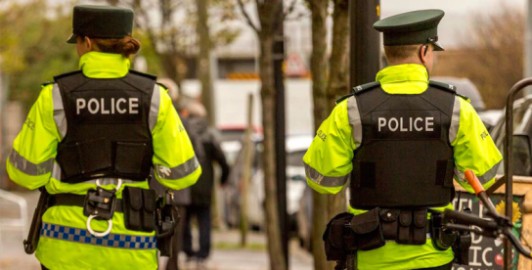Police officer learning, development and wellbeing has been a fundamental strand of research as part of Operation Soteria. Police officers and staff involved in the investigation of rape and sexual violence were interviewed in five forces in England and Wales during 2021–2022. Officers investigating rape cases reported being exposed to trauma and reported high levels of burnout given high demand and reduced capacity to deal with complex investigations. Lack of resources increased officers’ sense of work-related pressure, which was compounded by a desire to do the best job to support both victims and colleagues. Overall, interviewees did not prioritise their own needs and reported limited space in their working practice to reflect on their own wellbeing, either formally in terms of organisations provision or informally within their teams. This article discusses research that outlines the importance of working practices that promote self-care and reflection. It emphasises the need to consciously consider emotional responses to work, particularly in roles where people are exposed to complexity and trauma.
The key to employee wellbeing is meaningful internal support that enables self-care (Lennie, 2022). However, self-care is the route to good physical and mental health, and essential in environments where our minds are repeatedly challenged. A recent study has identified that Complex Post Traumatic Stress Disorder (C-PTSD) is more typical in police officers and staff than Post Traumatic Stress Disorder (PTSD), with one in five police officers and staff suffering with C-PTSD. This is due to the repetition of trauma, rather than the single event trauma response typically associated with PTSD (Brewin et al., 2020). However, it is worth recognising that trauma in a policing context is not necessarily external to the organisation: high risk/high volume case load, lack of resources, inadequate training, internal investigations, competing demands, and so on are all contributing factors to C-PTSD in the high risk/high demand environment of serious sexual offence investigations (MacEachern et al., 2018).
The Autonomic Nervous System (ANS) is key to our physical and psychological health and is responsible for our body’s involuntary and essential activities such responses to stress and threat (Ziegler, 2012; Glick et al., 2016). The ANS consists of two sub-systems that are considered to work opposite to each other: the Sympathetic Nervous System (SNS) and the Parasympathetic Nervous System (PNS).
The SNS activates in response to stress, which when severe or uncontrolled is responsible for the release of chemicals and hormones into the blood stream leading to a constriction of muscle, elevation of heart rate and blood pressure, and activation of the sweat glands (Ziegler, 2012; Kumar et al., 2021). This is the ‘flight or fight’ response that primes our bodies to meet the on-coming threat.
In contrast the PNS is often referred to as ‘rest and digest’ as it engages the process of calming the body down as the body relaxes and cognitive functioning increases (Tindle and Tadi, 2021). It is likely that officers and staff suffering with C-PTSD will need more time to engage their PNS and activate their rest and digest to stay well.
Accessing our PNS on a regular basis is key to our health and wellbeing and to our cognitive functioning, productivity and decision making. Each one of us is different: what stresses us, our behaviour and response will differ within and between individuals, as is the way we seek to calm our nervous system down and allow our bodies to ‘rest and digest’. But how do we recognise in ourselves when we need some extra self-care, or even external support? Before good self-care comes self-awareness.
Reflective practice is typically used as a professional development tool, enabling professionals to learn and grow from their own working experiences. It is the ‘process of internally examining and exploring an issue of concern, triggered by an experience, which results in a change of perspective’ (Bolton and Delderfield, 2018). It is a structured process that supports and guides individual examination of personal experience. Reflective practice discourages rumination (known for poor mental health and wellbeing) and assists growth and development by actively challenging assumptions. It also identifies areas for learning, to adapt because of the learning, and move on.
An important focus of reflective practice is the emotional experience. Often emotion is the first reaction to a situation and can be associated with forgotten emotions. These emotions need to be acknowledged, understood, and responded to constructively, and not suppressed. It is known that emotions are key in decision making, and if not acknowledged can either inappropriately (and unwittingly) drive decision making or emotions can be overlooked, which can have clear consequences in the professional arena.
Returning to the Operation Soteria research, the interviews undertaken with officers and staff involved in rape investigations indicated that alongside them routinely dealing with the traumatic nature of cases and them feeling stressed and burnt out, they also reported no opportunities to extend their own development. This meant there was a lack of learning and space to critically reflect at several levels: through Continuing Professional Development (CPD) offers, with colleagues to ensure case handovers were comprehensive, to check decision making about investigative progress, to review victim’s needs, and with supervisors to have a safe space to consider their emotional responses and consider what be required for support.
Research has identified a culture of silencing and stigma around emotions and mental health within policing (Lennie et al., 2019; Lennie et al., 2020). The consequences for officers are significant. Silencing around emotional expression contributes to poor mental health outcomes through an inability to process trauma. With this culture of stigma and lack of discussion, officers struggle to identify and express their own emotional experiences, which is key to trauma processing and mental health prevention. Self-reflection is a method to grow self-awareness and explore, understand and grow from experiences. The intention is that this will develop emotional awareness and language, enabling officers and staff to identify and express their experiences in a way that contributes to healthy emotional processing.









Rate and Review
Rate this article
Review this article
Log into OpenLearn to leave reviews and join in the conversation.
Article reviews